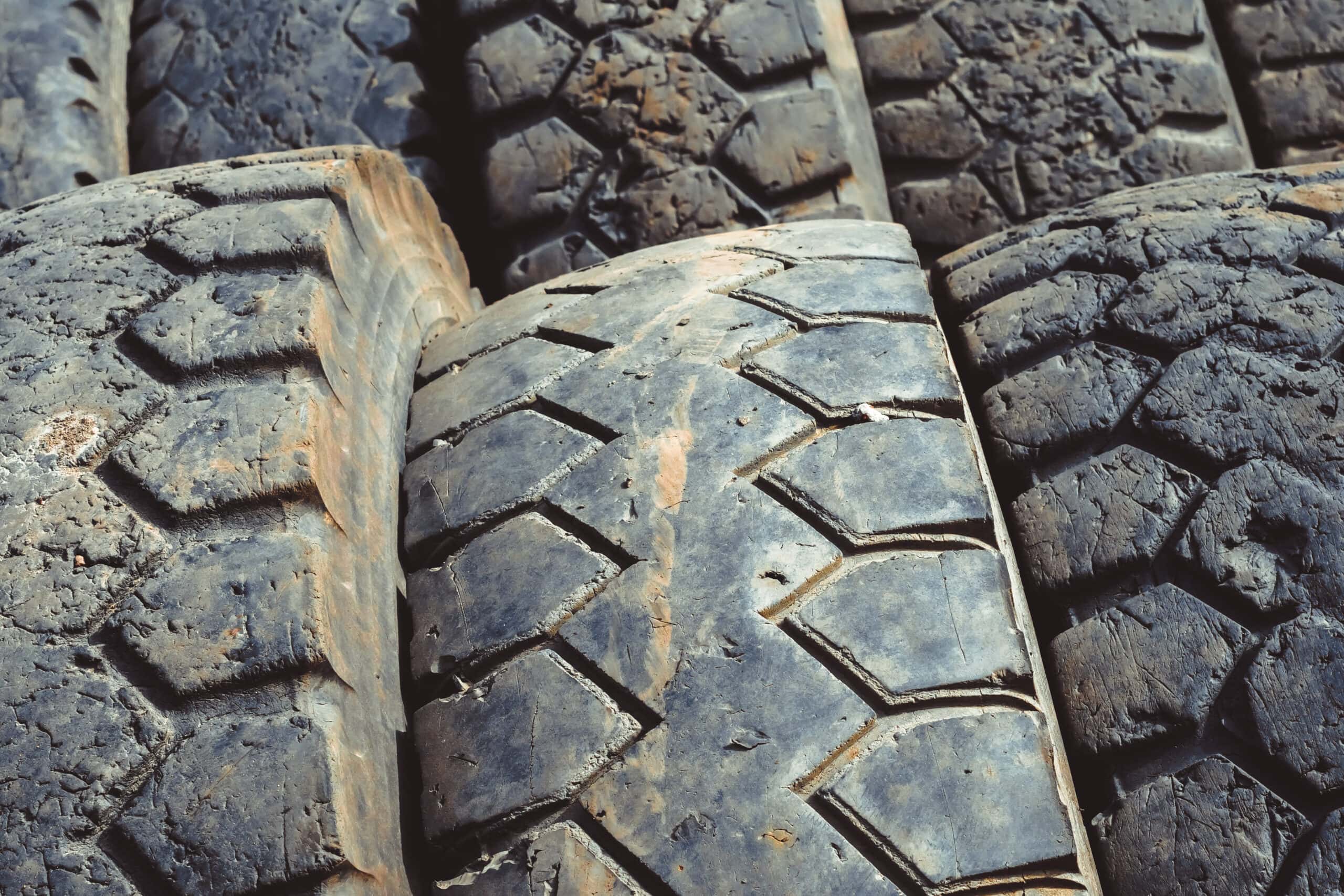How long do 18 wheeler tires last is an interesting question. We all know tires wear out over time, and old tires are dangerous both to the driver and to other people on the road. When an old tire gives out while driving, it can cause a serious accident. Drivers of 18 wheelers should always be aware of how old their tires are and when they are in need of replacement.
How Long Do 18 Wheeler Tires Last?
Tires for 18 wheelers last 3-6 years on average. They should never be kept for more than 6 years even if they look like they’re in good shape. That’s because, by that time, the material in the tires themselves will be brittle. They won’t be able to stand up to even minor damage as well, and the risk of a blowout is high.
It’s also recommended that you replace them in pairs, to keep the ride smooth and maximize fuel efficiency.
Factors That Influence How Long Do 18 Wheeler Tires Last
There’s really no one-size-fits-all solution to tire life span. There are many different factors that affect how long your tires will last, and sometimes even the highest quality tires will give out after just a couple of years.
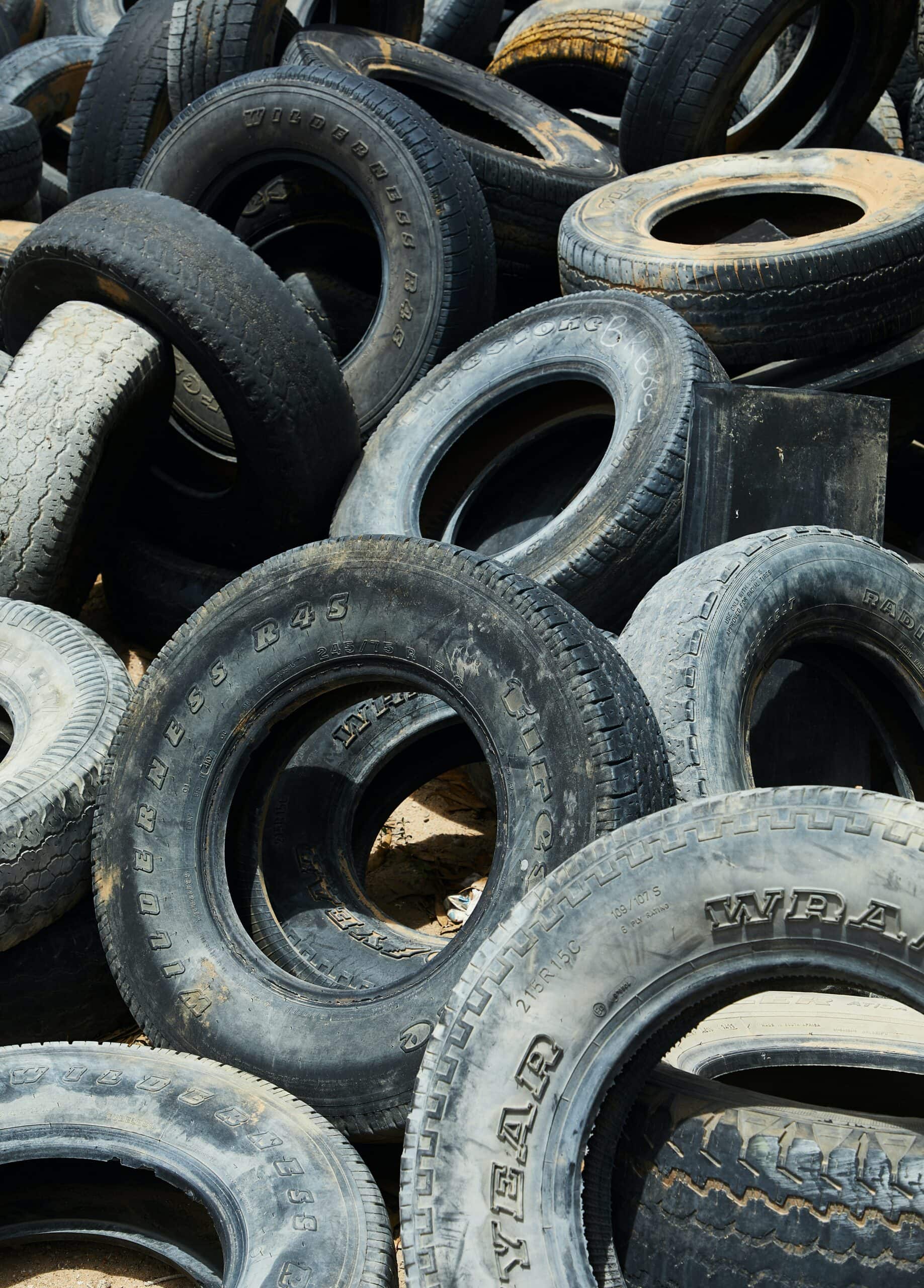
Mileage
The first and most obvious factor that affects how long do 18 wheeler tires last is mileage. The more you drive on them, the more wear and tear they experience. As the treads wear down, the tires lose traction, which makes them less effective.
It can also affect gas mileage, because the tires don’t grip the road as well. That means they won’t propel the 18 wheel as efficiently. Mileage is the biggest killer of tires. A truck that’s driving 200,000 miles per year is going to have to change its tires much more frequently than one driving 100,000 miles per year.
Driving Surfaces
A less obvious factor in how long do 18 wheeler tires last is the surface they’re being driven on. A smooth highway won’t wear the tires down nearly as fast as gravel or dirt roads. Rocky ground can also wear them down quickly.
Since 18 wheelers often have to drive around near mining operations and in industrial parks, its very common for 18 wheeler tires to be exposed to unusually rough driving surfaces. These tires aren’t going to last as long as ones that are only used on paved roads.
18 Wheeler Tire Brands
Some tires are simply made better than others. Cheaper tires will wear out faster, and more expensive tires will last longer. It usually makes sense to invest in more expensive tires, since you’ll end up changing them a lot less frequently.
The only exception might be if you know you’re only going to be driving your 18 wheeler on highways and other paved roads. Since you’ll be driving on a surface that’s easy on your tires, you may not need to pay top dollar for the toughest tires.
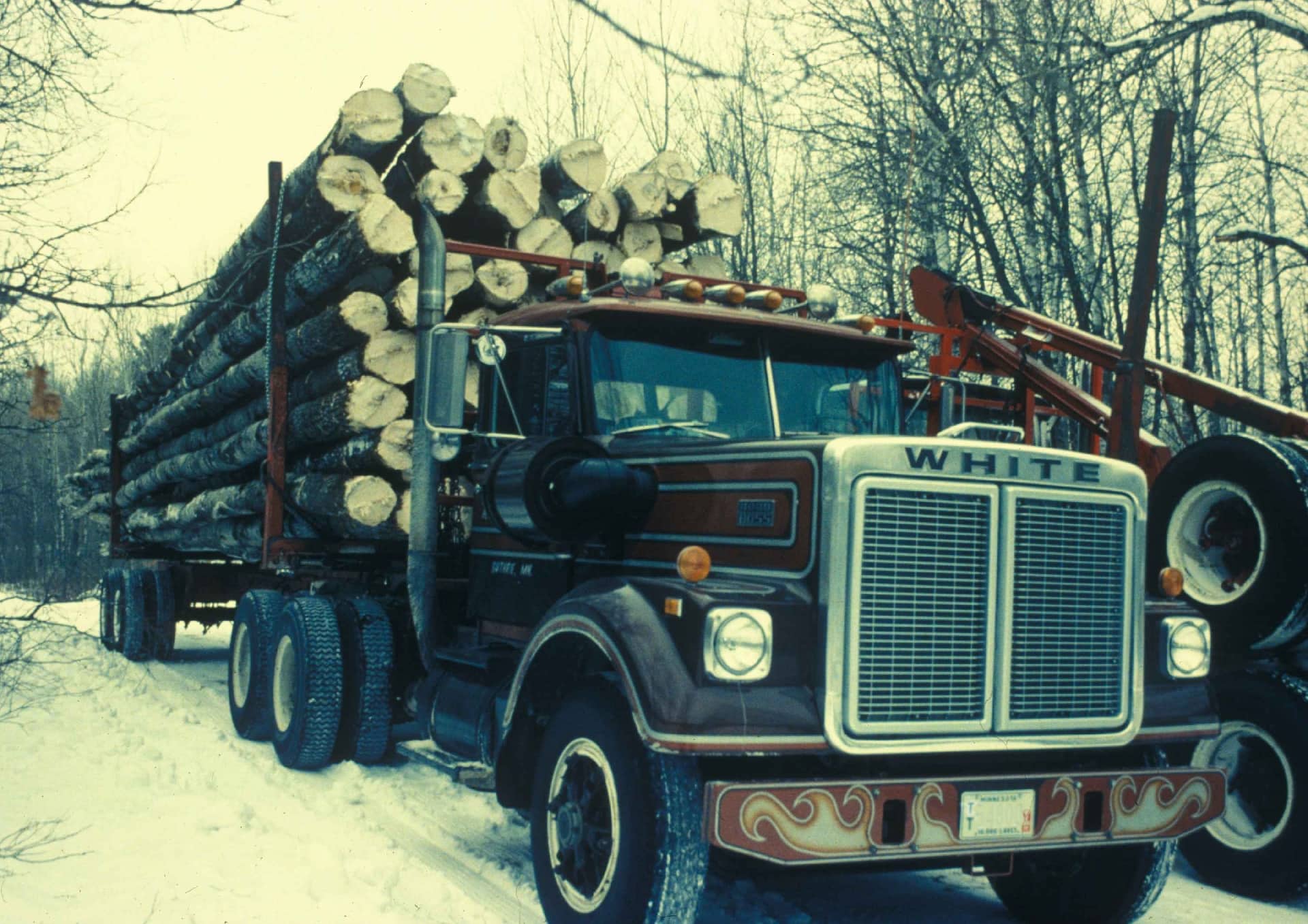
Weight of Loads
One of the most important factors in how long do 18 wheeler tires last is the weight of the loads in the trailer. Heavier loads put a lot more strain on the tires, which wears them out more quickly. Lighter loads aren’t nearly so hard on your tires.
A truckload of gravel is going to put a lot more wear and tear on your 18 wheeler tires than a truckload of pillows, even though both will occupy the same amount of space. It may actually be worth considering the cost of replacing your tires when you’re deciding what kinds of cargo you carry.

Driving Habits
The final factor which contributes to the lifespan of your tires is the driving habits of the driver. One of the reasons why proper driving skills are so important is that they effect the overall maintenance of the vehicle, including the tires. This is why it is important to learn how to drive an 18 wheeler properly.
Accelerating and braking too hard puts a lot of strain on your tires. Gentle acceleration and braking is one of the best ways to preserve your tires. A lot of trucking companies are investing in ways to monitor their drivers so they can correct bad driving habits, and lower their maintenance costs.
What Are 18 Wheeler Tires Made Of?
When you really think about how much driving they do, and all the weight they carry, it’s actually incredible that these tires can last as long as six years. They must be made of some pretty tough material to last that long.
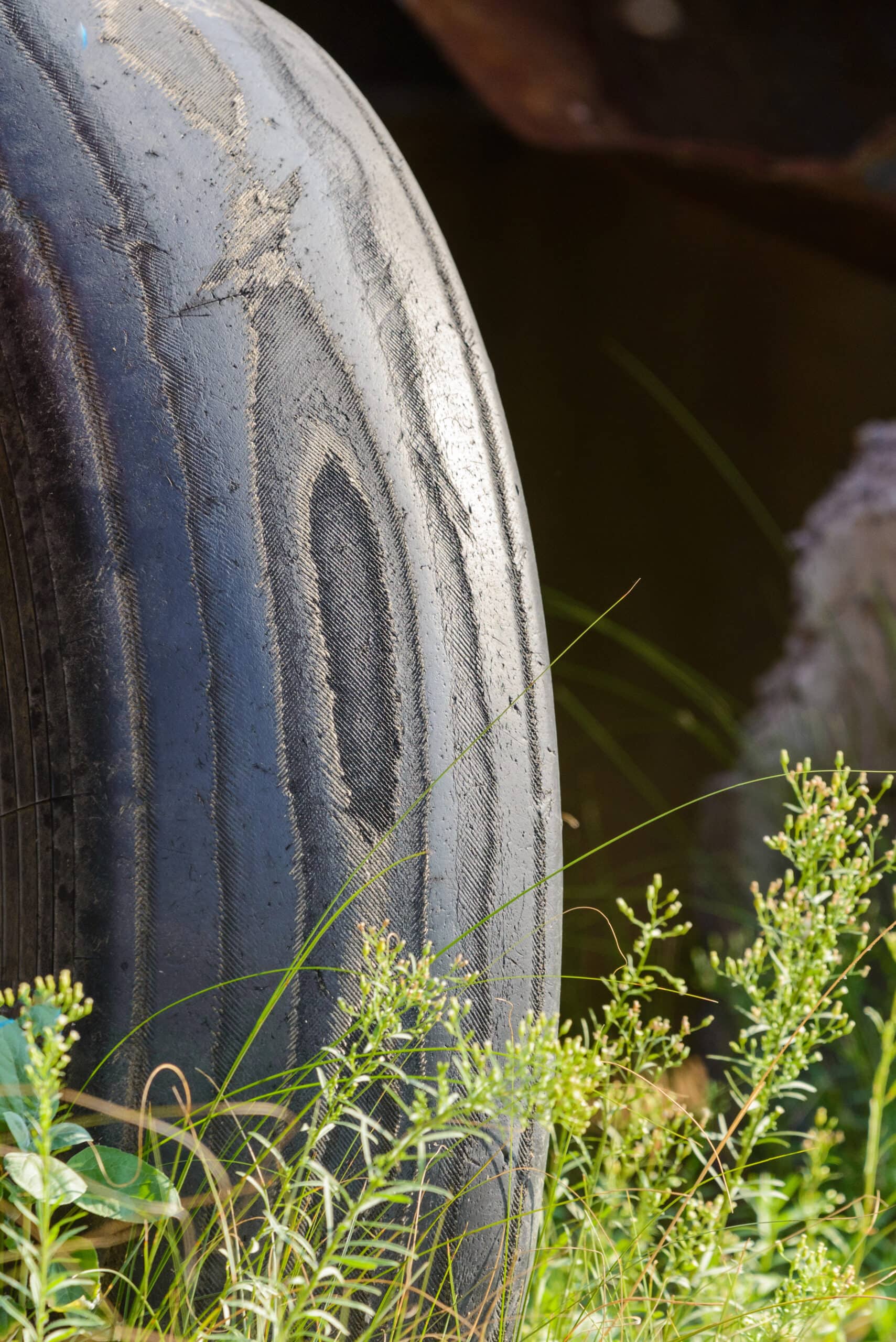
18 Wheeler Tires Have Lots of Layers
One of the secrets to the incredible toughness of these tires is that they can be made from up to seven layers of material. That adds a lot of stiffness and structural integrity to the tires. It gives them the ability to withstand a surprising amount of damage, too. Anything that penetrates the tire has to get past seven layers of very tough material before it can do real damage.
Inner Liner
Rather than the tube in your car tires, 18 wheeler tires have an inner liner which is what gets filled with air. This liner is made of materials like butyl, synthetic rubber, or polyisoprene. All of these are very strong materials that can hold a lot of pressure and are difficult to damage.
The inner liner is not a separate component, like the inner tube on a car tire. It’s the innermost layer of the tire material. This helps to improve the durability of the whole tire, and also reduces the cost of replacing them.
Carcass Ply
This oddly named layer is the most important part of an 18 wheeler tire. It has cords that run from one side of the tire to the other. This is the layer that absorbs the air pressure, the weight of the vehicle and the cargo, and the shock from the road. Essentially, it’s the structural framework of the tire.
You can think of the carcass ply like the skeleton of the tire. It’s what supports the rest of the tire. As such it’s one of the toughest parts of the whole tire.
Bead
The bead is what connects the tire to the rim of the wheel. This means the bead is a small, but very tough component. It has to hold the tire on the wheel, against a lot of air pressure, centripetal force, and weight.
Usually, there’s metal wire running through the bead to give it plenty of structural integrity. In addition, the rim of the wheel is usually tightened somewhat in order to protect against slight drops in air pressure. This helps minimize the risk of a blowout, where the tire flies off the wheel.
Sidewall
This is literally the side of the tires. The purpose of the sidewall is largely to provide some protection for the carcass underneath, but it also serves to improve the overall ride of the 18 wheeler. It’s flexibility helps to absorb bumps and dips in the road.
The sidewall is also what carries the important information like tire brand, size, and the pressure rating. This is where you’ll look to see how much air you can safely fill your tires with.
Belts
In an 18 wheeler tire the belts are reinforced layers in between the tread and the carcass. They add strength to the structure of the tire while also protecting against punctures. This extends the life of the tire quite a bit.
Tread
The tread is a very thick rubber layer along the outside of the tire. This is the part that makes direct contact with the road. Therefore, it’s the part which experiences the most wear and tear. Treads provide grip and traction.
Treads wear out more quickly on rougher surfaces, and they also wear out more quickly when the truck is carrying heavier loads. They are also one of the most variable components. The biggest differences between different models of tire are usually found in the treads.
How To Make 18 Wheeler Tires Last Longer
There’s no question that good tires are expensive, and you really don’t want to keep your tires on the 18 wheeler longer than is safe. There are some things you can do, though, that can maximize the lifespan of your tires.
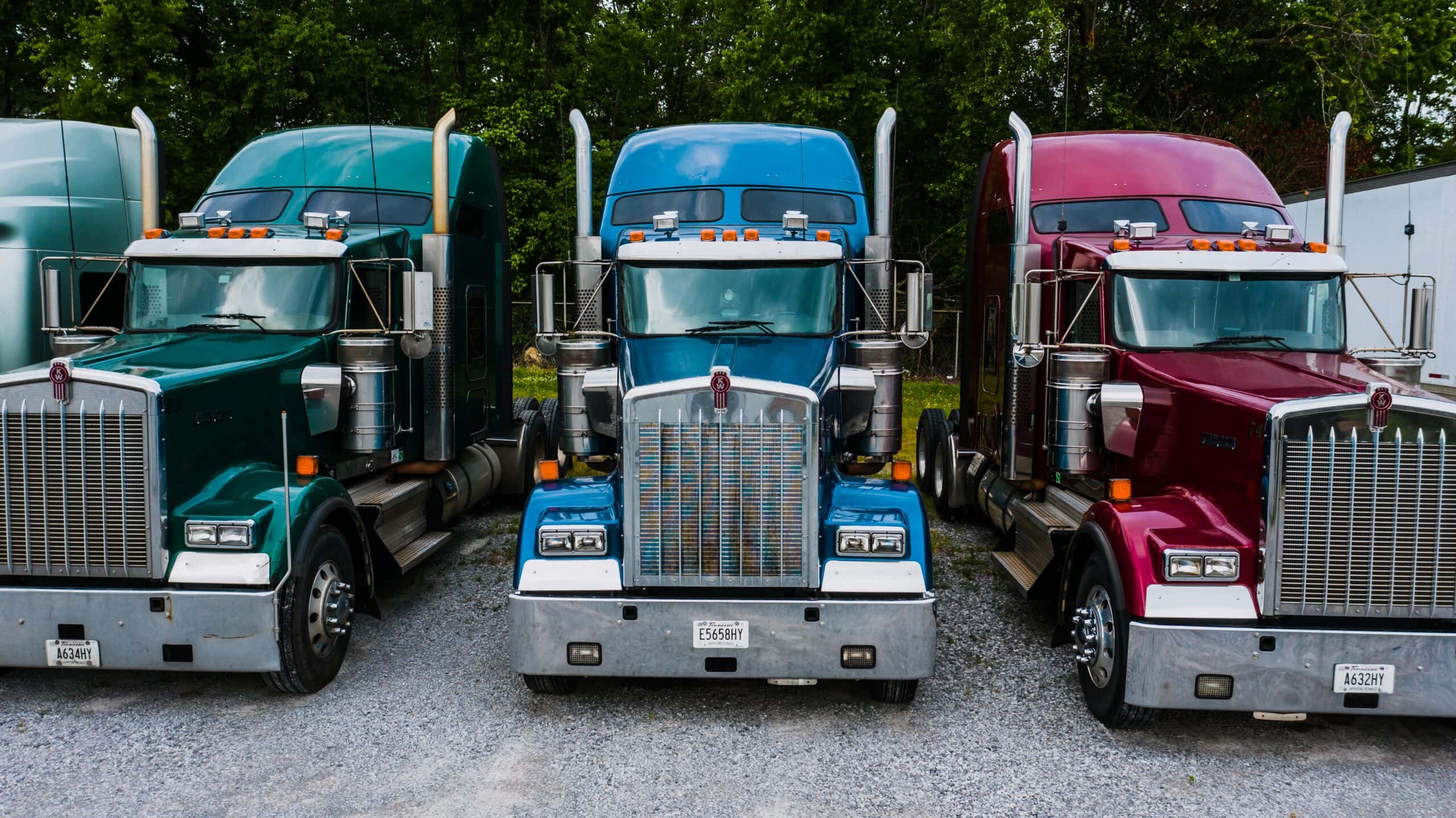
18 Wheeler Tire Rotation
A great way to help you tires last longer is to rotate them every 10,000 miles. Rotating your tires consists of moving the tires around to different wheels. It may seem silly, but it serves an important purpose.
Rotating your tires helps them to wear evenly. Some of your tires will be wearing down more quickly than others. The drive tires- the ones connected to the drive shaft- will experience the most wear. That’s because these are the only tires that are actually moving your 18 wheeler.
They are the only tires that are translating the energy from the engine into motion. The other tires are essentially just spinning freely. That means these tires, which are usually the four at the back of the tractor, experience a lot more wear than the others. By rotating all of your tires, you expose each one to a little bit of that intense wear and tear, and then give them a break.
This can help your tires last a lot longer, by spreading out the worst of the wear over each tire instead of concentrating it on just four of them.
Wheel Balance and Alignment
As you drive your 18 wheeler, your wheels can become unbalanced, and the alignment can be thrown off. Basically, your wheels won’t be straight anymore. This makes the 18 wheeler more difficult to drive since it will be harder to move in a straight line.
It impacts your fuel efficiency too, because the engine is going to have to worker harder when the wheels are out of alignment. For your tires, if the wheels aren’t aligned, the tires are not going to be rolling along the ground correctly.
The road pressure won’t be applied evenly across the treat, and that can accelerate the wear on the tread of the tires. As a result, your 18 wheeler tires won’t last as long as they should. A lot of 18 wheeler drivers overlook this key part of maintenance because the equipment to balance and align 18 wheeler tires is different from what’s used on regular cars.
That’s definitely a mistake, because balancing and aligning your 18 wheeler tires can make a big difference in how long your tires last. It can also improve your gas mileage and make the 18 wheeler easier to drive.
Have Your 18 Wheeler Tires Check By A Professional
One of the smartest things you can do for your 18 wheeler tires is to have them checked by a professional. At every routine stop you should have an opportunity to have somebody go over them and make sure there are no issues.
This will also let you identify issues early on before they become a serious problem. That can end up saving you a lot of money in the long run. You can easily avoid blowouts on the highway with just a bit of regular maintenance.
Conclusion
18 wheeler tires are one of the most expensive maintenance costs in any shipping business. The tires themselves aren’t cheap, and they always have to be replaced eventually. You can maximize the life of your tires, and minimize your maintenance costs, with some key maintenance routines.
You can also alter your driving habits, especially your acceleration and braking, to be gentler on your tires. Doing these things can help your tires last the full six years instead of having to replace them after just three.
About Booker Transportation
Booker Trans is 100% Owner Operator. It is our belief that an Independent Owner is the best way to get a customers freight delivered timely and safely. Booker is a leading Refrigerated Carrier providing the best lease options in the industry for today’s Owner Operators. Monthly and Yearly Awards, Longevity Bonuses, and the Free tires for Life of Lease Program, are just a few examples of what Booker Trans offers the Owner Operator. Booker Trans has built it’s success upon working partnerships with Customers, as well as Agency Relationships built over the last 20 years. Those same relationships are what makes consistent year round freight possible.
Are you interested in becoming an owner operator driver or getting into the logistics industry?
Let’s connect!
Navigating the Highways of Change
04/18/2024

Owner Operators should be prepared for Cellular Service outages!
03/06/2024

